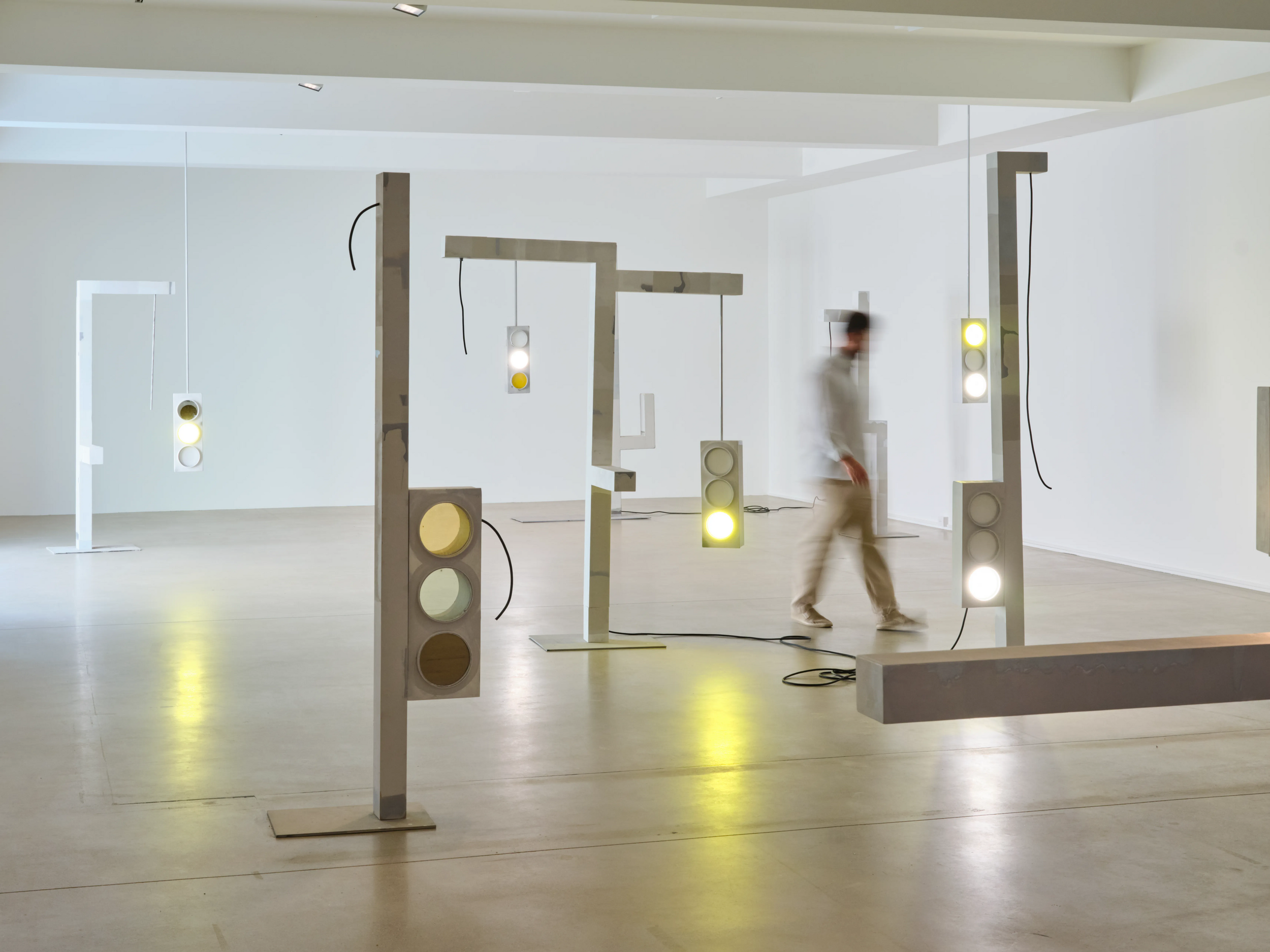People Planet Profit is Peter Fischli’s first solo exhibition in France.
One of the most important artists of his generation, Fischli is world-renowned for his four-decade collaboration with David Weiss (1946-2012) in the innovative conceptual duo Fischli/Weiss. Now working solo, he cultivates a critical engagement with the aesthetics of everyday life and systems of meaning, with works that playfully challenge the boundaries between art and life.
The exhibition, which brings together recent creations – sculptures, installations, videos and a sound piece – explores the way in which the signifiers, symbols and infrastructures of capitalism vie for our attention, circulating relentlessly, choreographing our movements, shaping our perceptions and emotions. The omnipresent, mobile and flattened image is at the heart of the exhibition. All the images presented, whether still or animated, were recorded using the artist’s cell phone. Peter Fischli’s use of LUMA’s exhibition spaces evokes an “augmented city”, a place where images and users interact via increasingly entangled digital and physical systems. Here, objects, images, people, meanings and capital seem to circulate perpetually, arousing mixed feelings of curiosity, fascination and sometimes perplexity.
Entitled after the entrepreneurial concept of “triple performance”, the exhibition invokes a model that seeks to broaden the criteria for corporate success to include social well-being and environmental sustainability, in addition to profit. From this perspective, Fischli questions the evolution of the notion of value, its dissemination and its aestheticization. He invites us to ask whether people, planet and profit can really coexist, or whether their reconciliation is, at bottom, no more than a dubious fiction recited by late capitalism.
The exhibition focuses on the production and transformation of materials, media, work and social values. The venue, the former forges of the Parc des Ateliers, is an eloquent embodiment of this. Once an industrial site dedicated to the manufacture and repair of locomotives, today a cultural space, it traces a delicate trajectory through history. From heavy industry to the often more flexible forms of work associated with today’s creative economies, it symbolizes the transition from material production to the immaterial flows of data, screens and services that characterize our post-industrial era.
Far from being a simple presentation of images, People Planet Profit reflects the world back to us in new forms, always slightly refracted, shifted and unexpected, revealing the architecture of a world in perpetual and dizzying evolution.

